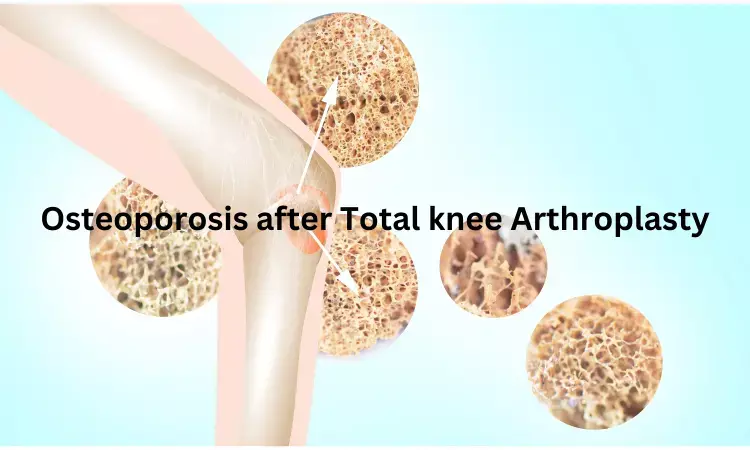- Home
- Medical news & Guidelines
- Anesthesiology
- Cardiology and CTVS
- Critical Care
- Dentistry
- Dermatology
- Diabetes and Endocrinology
- ENT
- Gastroenterology
- Medicine
- Nephrology
- Neurology
- Obstretics-Gynaecology
- Oncology
- Ophthalmology
- Orthopaedics
- Pediatrics-Neonatology
- Psychiatry
- Pulmonology
- Radiology
- Surgery
- Urology
- Laboratory Medicine
- Diet
- Nursing
- Paramedical
- Physiotherapy
- Health news
- Fact Check
- Bone Health Fact Check
- Brain Health Fact Check
- Cancer Related Fact Check
- Child Care Fact Check
- Dental and oral health fact check
- Diabetes and metabolic health fact check
- Diet and Nutrition Fact Check
- Eye and ENT Care Fact Check
- Fitness fact check
- Gut health fact check
- Heart health fact check
- Kidney health fact check
- Medical education fact check
- Men's health fact check
- Respiratory fact check
- Skin and hair care fact check
- Vaccine and Immunization fact check
- Women's health fact check
- AYUSH
- State News
- Andaman and Nicobar Islands
- Andhra Pradesh
- Arunachal Pradesh
- Assam
- Bihar
- Chandigarh
- Chattisgarh
- Dadra and Nagar Haveli
- Daman and Diu
- Delhi
- Goa
- Gujarat
- Haryana
- Himachal Pradesh
- Jammu & Kashmir
- Jharkhand
- Karnataka
- Kerala
- Ladakh
- Lakshadweep
- Madhya Pradesh
- Maharashtra
- Manipur
- Meghalaya
- Mizoram
- Nagaland
- Odisha
- Puducherry
- Punjab
- Rajasthan
- Sikkim
- Tamil Nadu
- Telangana
- Tripura
- Uttar Pradesh
- Uttrakhand
- West Bengal
- Medical Education
- Industry
Osteoporosis a risk factor for revision surgery after total knee arthoplasty

The first Knee replacement surgery was performed in 1968. Since then, improvements in surgical materials and techniques have greatly increased its effectiveness. Total knee replacements are one of the most successful procedures in all of medicine to manage knee and knee related injuries however there is a risk of revision surgery in patients who have osteoporosis after total knee arthroplasty (TKA).
A new study compared the 5-year cumulative risk of revision surgery after TKA in patients who have preoperative osteoporosis and found that patients with osteoporosis had a two-fold increased risk for revision for periprosthetic fracture at 5 years after total knee arthroplasty compared with patients without osteoporosis. The findings of the study are published in The Journal of Arthoplasty.
The key findings of the study are
• The 5-year rate of all-cause revision surgery was higher for patients who had osteoporosis (Hazards Ratio (HR) 1.1, 95% Confidence interval (CI):1.0-1.2), however, the highest risk of revision surgery was seen for periprosthetic fracture (HR 1.8, 95% CI:1.6-2.1).
• Patients who had osteoporosis also had elevated risk of revision surgery for periprosthetic joint infection (PJI) (HR 1.2, 95% CI:1.1-1.3) and aseptic loosening (HR 1.2, 95% CI:1.1-1.3).
• Osteoporosis was independently associated with PJI and aseptic loosening at a higher rate in obese patients.
Researchers concluded that “When examining all patients in unadjusted survival analysis, those who had osteoporosis have a marginally lower risk of all-cause revision surgery after TKA. However, after controlling for age, sex and comorbidities, patients who had osteoporosis have a nearly 2-fold increased risk of 5-year revision for PPF after TKA, and mildly increased risk of revision for all-causes, aseptic loosening, and PJI. Obesity may also modulate this association. Future studies should determine the extent to which treatment of osteoporosis modifies these postoperative outcomes.”
Reference: Andrew B. Harris, MD , Mark A. Lantieri, MD Et al; Osteoporosis and Total Knee Arthroplasty: Higher 5-Year Implant-Related Complications; October 29, 2023 DOI: https://doi.org/10.1016/j.arth.2023.10.045
MSc. Neuroscience
Niveditha Subramani a MSc. Neuroscience (Faculty of Medicine) graduate from University of Madras, Chennai. Ambitious in Neuro research having worked in motor diseases and neuron apoptosis is interested in more of new upcoming research and their advancement in field of medicine. She has an engrossed skill towards writing and her roles at Medical dialogue include Sr. Content writer. Her news covers new discoveries and updates in field of medicine. She can be reached at editorial@medicaldialogues.in
Dr Kamal Kant Kohli-MBBS, DTCD- a chest specialist with more than 30 years of practice and a flair for writing clinical articles, Dr Kamal Kant Kohli joined Medical Dialogues as a Chief Editor of Medical News. Besides writing articles, as an editor, he proofreads and verifies all the medical content published on Medical Dialogues including those coming from journals, studies,medical conferences,guidelines etc. Email: drkohli@medicaldialogues.in. Contact no. 011-43720751


